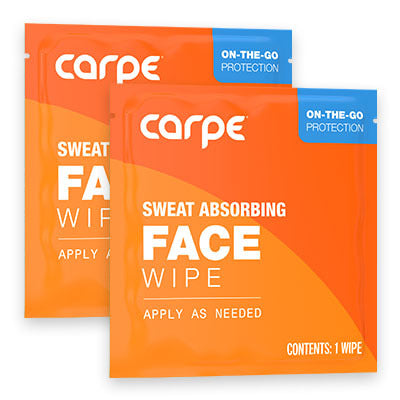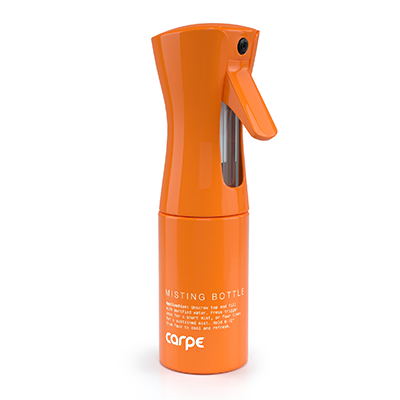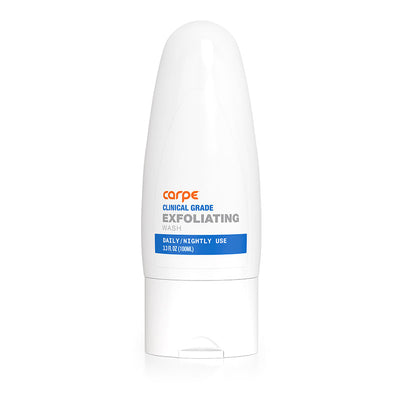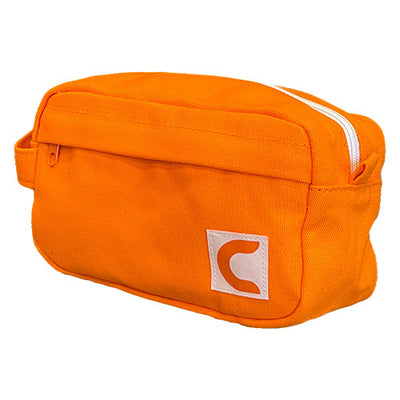Why Do We Sweat More in the Summer?
There is a good reason why humans sweat more in the summer: heat. The summer brings hot weather, and depending on where someone lives, the heat they are exposed to can be significant. But why does heat make people sweat?
Humans are designed to maintain an internal body temperature within a narrow range of temperatures between 91.76 and 100.76 degrees fahrenheit. When humans are exposed to high external temperatures their body has to work in order to cool itself down and keep its internal temperature within a safe range. The main way the body does this is by sweating. Sweat works with body temperature in a way that it allows the body to cool itself down. The body’s ability to regulate its internal core temperature is called thermoregulation and that process is what initiates sweating.[1]
Sweating is the only automatic process the body has to cool itself down which makes it critical for survival. When a person is exposed to high temperatures the body initiates sweating. The brain senses that a person’s internal temperature is beginning to rise in response to their environment and it activates the sympathetic nervous system. This is a branch of the nervous system that is responsible for activating automatic bodily functions, including the “fight or flight” response. The sympathetic nervous system is attached to eccrine sweat glands via sympathetic cholinergic fibers which activate the sweat glands. Eccrine sweat glands are located all over the body and they are where sweat is produced and pumped onto the surface of the skin. There is another type of sweat gland, called apocrine sweat glands, but they are not thought to be used in thermoregulatory processes. When sweat glands are activated, vasodilation (expanding of the blood vessels) begins and sweat glands begin taking liquid from blood vessels and secreting it onto the surface of the skin. Sweat is made of water, for the most part, and once sweat is on the skin it is rapidly evaporated off into the surrounding environment as water vapor. When sweat leaves the skin it carries heat energy with it that was previously inside the body, thus cooling the body down. When the body has cooled itself enough the brain sends signals to the sweat glands to stop producing sweat and the process is halted.[1]
This is all a normal part of why humans sweat, and it is part of what allows to exist in so many varied environments on the planet. Without the ability to sweat, summer would be a lot more deadly.
Sources
- Tansey, E. A., & Johnson, C. D. (2015). Recent advances in thermoregulation. American Physiological Society. Retrieved April 18, 2019, from https://www.physiology.org/doi/full/10.1152/advan.00126.2014.
Should You Wipe the Sweat off Your Body?
Before wiping the sweat off your body, you might want to understand why it is there in the first place. The reason why humans sweat is to aid in heat dissipation (getting rid of heat). This allows the body to maintain its thermoregulation, or keep its core temperature steady regardless of the external environment. Sweating is extremely important in the process of thermoregulation because it is one of the body’s only ways of getting rid of heat.[1] So, there are times when it is good to let your sweat drip and times when it is better to wipe it off.
Anhidrosis, also known as hypohidrosis, is the inability to produce sweat or deliver it to the surface of the skin. It is one of the most serious sweating conditions.[2] There are several potential causes of anhidrosis and its effects can be severe, and in some cases, life threatening. All people who have anhidrosis will experience the inability to sweat, but the other symptoms they may experience are usually related to the type of anhidrosis they have.[3]
When Not to Wipe
When people are exercising or in an environment with a high temperature sweating is essential to keep the body’s temperature from getting too high. In these circumstances, it may be best not to wipe you sweat away. This is because sweat transfers heat from your body to the environment when it evaporates off of the skin. During the sweating process blood vessels dilate and hot liquid from the vessels is pumped onto your skin by your sweat glands so that the heat can be transferred to the air around the body.[1] By wiping sweat away, you are hindering that process and preventing your body from cooling off like it needs to. This could allow your body to overheat and hinder you from performing or feeling your best. On the other hand, wiping your sweat away is not likely to cause you to overheat, so don’t worry about it if you do. So, when in hot temperatures or during exercise refrain from wiping your sweat away if you can resist the urge.
When to Wipe
There are some times when it is important to wipe your sweat off. This applies if you have been sitting in sweat for a long period of time. It is standard hygiene practice not to sit in sweat for long periods of time. This is because there are bacteria on the surface of the skin that digest the proteins and fatty acids in odorless sweat and produce isovaleric acid and androsterone which are unpleasant smelling. This is especially true of sweat produced by apocrine glands, which is thicker and tends to smell worse. Apocrine glands are primarily located in your armpits and groin areas, so be sure to keep them clean.[2] It is always advisable to wipe off sweat after a workout is completed or after being in a hot place for an extended period of time. It won't hurt to take a shower and put some fresh clothes on either.
Some people suffer from hyperhidrosis or bromhidrosis, conditions that can make people sweat too much or have especially stinky sweat, and it is important for people with these conditions to maintain their skin cleanliness. Hyperhidrosis causes people to sweat excessively even in the absence of sweat triggering stimuli, so they need to wipe away sweat frequently to prevent skin breakdown and irritation.[3] For those with bromhidrosis, which causes sweat to be excessively stinky, keeping skin clean is imperative. The longer sweat sits on a person's skin the more time bacteria will have to break it down and create a foul odor.[1]
So, if you are actively engaging in exercise or stuck in the heat resist the urge to wipe! However, if you have hyperhidrosis, bromhidrosis, or easily irritated skin then make sure to keep your skin clean and fresh after you are done with a workout and during normal daily life.
Sources
- Shibasak, M., & Crandall, C. G. (2010). Mechanisms and controllers of eccrine sweating in humans. Front Biosci (Schol Ed), 292-296. Retrieved March 5, 2019, from https://www.ncbi.nlm.nih.gov/pmc/articles/PMC2866164/.
- Eshini, P., & Sinclair, R. (2013). Hyperhidrosis and bromhidrosis: A guide to assessment and management. Australian Family Physician, 42(5), 266-269. Retrieved March 5, 2019, from http://ezproxy.co.wake.nc.us/login?url=https://search.proquest.com/docview/1430424903?accountid=14867
- Pariser, D. M. (2014). Hyperhidrosis (4th ed., Vol. 32). Philadelphia, PA: Elsevier.
What Your Body Loses When it Sweats
What Sweat Is Made Of
In order to know what your body loses when it sweats it is important to first understand what sweat is made of. There are two types of sweat glands in the human body: eccrine and apocrine glands. Both produce sweat with a different chemical composition. Eccrine glands tend to produce sweat that is clear, odorless, and composed of primarily water. The sweat from eccrine glands also contains waste products from the blood like sodium chloride, urea, uric acid, proteins and immunoglobulins. Apocrine glands are only located on specific parts of the body, like the groin and armpit, and they produce sweat that is thicker, yellowish, and which has an odor. The sweat produced by apocrine glands also contains proteins and fatty acids. Typically, when people worry about losing nutrients from sweat they are concerned with the sweat that is being produced by the eccrine glands. Eccrine glands are located all over the body and they are the sweat glands that are activated by an increase in body temperature.[1]
The Biggest Things Your Body Loses When You Sweat
The biggest thing the body loses when it sweats is water. In fact, over 99% of sweat is made up of water.[2] When someone is sweating excessively the biggest thing they need to worry about is dehydration due to water loss. This most often happens due to a combination of high environmental temperatures, exercise, and the type of clothing a person is wearing which are factors related to why humans sweat. Excessive sweating that leads to dehydration can also lead to the loss of necessary electrolytes and a low plasma level in blood.[3] Electrolytes are essentially salts like potassium, calcium, magnesium, and sodium chloride (table salt) that the body needs to maintain water movement in and out of cells and to spark nerve impulses throughout the body. This is also why people are often left with a salty taste on their skin when the sweat a lot. To battle electrolyte imbalances from sweat loss people are encouraged the drink plenty of fluids that contain electrolytes (think Pedialyte or Gatorade) to replenish their body’s supply. One study found that men exposed to temperatures of 100 degrees or higher for a period of 7.5 hours lost relatively high concentrations of of not only potassium, magnesium, and sodium, but also iron. This suggests that mineral imbalances from sweat loss are more extensive than researchers previously thought.[4] Electrolytes are certain types of minerals that the body loses in sweat, but what about vitamins?
While electrolytes are the most well-known micronutrients affected by sweat loss, vitamin concentrations within the body can also be impacted. Researchers looking at the effects of excessive sweat loss are generally most interested in water soluble vitamins, as they are most likely to be carried in sweat. One study of factory workers exposed to high temperatures found that they had especially high losses of vitamin C related to sweat loss. Other vitamins that the study looked at, but that appeared to be less impacted by sweat loss, included B1 and B2. People who are experiencing excessive sweat loss, for whatever reason, should strive to combat potential deficiencies of micronutrients by including more of them in their diet. Micronutrients (other than vitamin D) cannot be made by the body, so they need to be supplied by diet.[5]
Hyperhidrosis and Sweat Loss
While hyperhidrosis, a condition that causes a person to sweat excessively, is distressing and physically uncomfortable, it is generally not dangerous. People with hyperhidrosis often sweat much more than is needed by the body, but typically not enough to deplete nutrients and cause a physiological crisis.[6] However, it wouldn’t be a bad idea for people with hyperhidrosis to regularly replenish micronutrients in an effort to maintain optimal health.
Sources
- Huddle, J. R. (2014). Hyperhidrosis: Causes, Treatment Options and Outcomes. New York, NY: Nova Science.
- Festa, J. (2015, July/August). 20 Things You Didn't Know About... Sweat. Discover.
- Popkin, B. M., D'anci, K. D., & Rosenburg, I. H. (2010). Water, Hydration and Health. Nutr Rev.,68(8), 439-458. doi:10.1111/j.1753-4887.2010.00304.x
- Consolazio, C. F., Matoush, L. O., Nelson, R. A., Harding, R. S., & Canham, J. E. (1969). Excretion of Sodium, Potassium, Magnesium and Iron in Human Sweat and the Relation of Each to Balance and Requirements. The Journal of Nutrition, 79(4), 407-415. Retrieved February 28, 2019, from https://doi.org/10.1093/jn/79.4.407.
- Tang, Y. M., Wang, D., Li, J., Li, X., Liu, N., Liu, W., & Li, Y. (2016). Relationships between micronutrient losses in sweat and blood pressure among heat-exposed steelworkers. Ind Health,54(3), 215-223. doi:10.2486/indhealth.2014-0225
- Pariser, D. M. (2014). Hyperhidrosis (4th ed., Vol. 32). Philadelphia, PA: Elsevier.
What Causes Skin Pallor and Diaphoresis?
Are you experiencing some new physiological symptoms that you are unsure of? Skin pallor and diaphoresis (aka excessive sweating) that occur suddenly are symptoms that deserve your attention, especially if you have noticed them occurring together.
It is important for people to pay attention to the signs their body gives them - in some cases they can be an indication of a serious problem that needs attention. This can be the case when someone experiences skin pallor and diaphoresis at the same time.
Pallor refers to the shade of a person’s skin, they are said to have pallor if they are more pale than normal. This is often an indication that someone is unwell and occurs due to lack of blood flow to the skin. Diaphoresis refers to the sudden development of excessive sweating that has no apparent cause and it is usually caused by a medication or an underlying health condition. Due to the fact that both of these symptoms can indicate an underlying health issue, it is important to take them seriously and seek medical guidance when they occur at the same time.[1]
Sometimes paleness and sudden excessive sweating can be caused by something as benign as an emotional state like panic. It may feel like a big deal, and it is, but if this is the case then you don’t need to worry about physical illness. People can also experience skin pallor for other physiologically normal reasons like naturally pale skin, lack of sunlight, and exposure to cold. However, these symptoms are not normally accompanied by diaphoresis.
Medicines are the most common cause of secondary hyperhidrosis, which is the same thing as diaphoresis. Diaphoresis can be a side effect of a medication, or a result of withdrawal. Skin pallor may occur if a medication makes you feel unwell or if it causes other side effects like vomiting. Pallor is usually mild if it is induced by a medication. If you recently started a new medication check with your doctor to see if it could be the cause of your skin pallor and diaphoresis. These symptoms can be caused by several common medications like:
- Painkillers
- Some heart and blood pressure medications
- Some cancer medications
- GI medications
- Others
This is not a comprehensive list so it is important that you seek medical care if you believe a medication is causing these side effects. Pallor and diaphoresis can also be caused by alcohol withdrawal, and in some cases, intoxication.[1]
If you have not recently started a new medication then your skin pallor and diaphoresis is likely caused by an underlying health condition. Here is a list of possible medical conditions that can cause both pallor and diaphoresis:
- Acute febrile illness and infections (influenza, mononucleosis, kidney infections, pancreatitis, etc…)
- Alcoholism
- Anemia
- Certain cancers (like lymphoma)
- Chronic infections (like tuberculosis, malaria, etc…)
- Diabetes mellitus
- Heart conditions
- Hypoglycemia
- Thyroid issues
- Shock
This list is not exhaustive and other health conditions could be causing your symptoms. If you are experiencing any other symptoms like vomiting, trouble breathing, or fainting it is imperative that you find medical attention quickly.[1]
If you are experiencing skin pallor and sudden excessive sweating, try not to panic. Try to remember that anxiety, in and of itself, can cause these symptoms. It is important to speak to a medical professional and figure out why you have pallor and diaphoresis, Every medical situation is unique and only your personal doctor will be able to fully understand and explain your specific situation.
Sources
- Pariser, D. M. (2014). Hyperhidrosis (4th ed., Vol. 32). Amsterdam: Elsevier Pub. Co., 2014. Retrieved from https://www.elsevier.com/books/hyperhidrosis-an-issue-of-dermatologic-clinics/pariser/978-0-323-32607-0
Can Iontophoresis Make Sweating Worse?
Iontophoresis is a treatment for palmar and plantar hyperhidrosis that uses an electrical current delivered through water to decrease excessive sweating. It is has been used as a treatment for over 70 years and has withstood the test of time. Scientific studies have shown that iontophoresis really does work, doctors regularly prescribe it, and side effects are reported to be mild.[1] However, some patients think that iontophoresis can actually increase their already excessive sweating. Is this true? It is hard to say. It appears on message boards across the internet, new users asking questions like “Can iontophoresis make my sweating worse?” Many users claim that iontophoresis is an effective treatment but admit that it did increase their sweat production when they first started treatment. While this may be the case for some individuals, it does not appear that any studies have specifically looked into the phenomenon. The good news is that most people who claim that iontophoresis did increase their sweating at first say it eventually did lead to a reduction in sweat. So, if you experience increased sweating when you first start iontophoresis keep trying and you will most likely see good results.
Iontophoresis is a mysterious treatment and no one is quite sure how it works. Some theories posit that iontophoresis plugs sweat glands as a result of ion deposition, blocks sympathetic nerve transmission, or decreases the pH of skin as the result of the accumulation of hydrogen ions. At any rate, studies have shown that about 91% of people respond positively to treatment. When side effects do occur during studies they are usually mild and don’t involve an increase in sweat production. The side effects that have been recorded include redness of the skin, small shocks, scratches, cuts, discomfort (feeling of pins and needles), vesiculation, and dry or cracked skin. Many of these side effects are caused by people using iontophoresis incorrectly and often go away after patients learn how to perform iontophoresis correctly. Some people find that iontophoresis doesn't work and there are ways to make it make it more effective. One study that looked at the effectiveness of iontophoresis over time did note that one patient out of 27 experienced a worsening of symptoms between week 3 and week 4 of the experiment.[2] However, the study still demonstrated the effectiveness of iontophoresis over time.
It is not known why some people appear to experience a worsening of symptoms after beginning iontophoresis but it doesn’t seem to impact the effectiveness of the treatment over time. If you experience a worsening of your hyperhidrosis symptoms after starting iontophoresis it is best to talk to your doctor so you can form a plan of action. If iontophoresis does not work for you, there are other effective treatments for for sweaty hands and sweaty feet.
Sources
- Pariser, D. M. (2014). Hyperhidrosis (4th ed., Vol. 32). Philadelphia, PA: Elsevier.
- Kim, D. H., Kim, T. H., Lee, S. H., & Lee, A. Y. (2017). Treatment of Palmar Hyperhidrosis with Tap Water Iontophoresis: A Randomized, Sham-Controlled, Single-Blind, and Parallel-Designed Clinical Trial. Ann Dermatol, 29(6), 728-734. doi:10.5021/ad.2017.29.6.728
Caffeine and Sweat
Caffeine is massively popular in today’s culture, in fact one study has estimated that 85% of the adults in the United States drink at least one caffeinated beverage a day.
For most people this is not a bad thing, several studies have documented the positive effects of moderate caffeine consumption.
Benefits of caffeine:
- mental alertness
- concentration
- fatigue reduction
- athletic performance[1]
However, for certain people, caffeine can cause side effects that have a negative influence on their quality of life.
This is especially true for people who suffer from hyperhidrosis, a condition in which a person sweats in excess of what their body needs for thermoregulation.[2]
For people who already struggle with excessive sweating, adding caffeine can cause a bad problem to become worse.
Coffee Causes People to Sweat
Caffeine is a type of mild stimulant.
Even though most people don’t think of it as a drug, it does cause notable psychological and physiological changes in the human body when ingested.
As it is a stimulant, caffeine accelerates the functions of the central nervous system.
While caffeine speeds up several processes within the central nervous system, its specific ability to increase thermogenesis of the body is the primary reason that caffeine causes people to sweat.[3]
Thermoregulation, the ability of the body to regulate its internal temperature, is the reason why humans sweat.
As caffeine accelerates thermogenesis, or causes the body to creates heat, the temperature of the body exceeds its natural set point in the hypothalamus.
The hypothalamus is the part of the brain that regulates physiological processes and it acts as a natural thermostat.
So, when the hypothalamus alerts the body that it is too hot it activates the sympathetic nervous system, which causes physiologic changes like sweating and vasodilation.
Hyperhidrosis, The Nervous System and Coffee
Primary hyperhidrosis is sometimes described as a disease caused by chronic autonomic nervous system dysfunction. The autonomic nervous system is responsible for unconscious bodily functions that keep a person alive, like breathing, temperature regulation and heartbeat.
Specifically, it is thought that the overactive sweat glands and excessive sweating caused by primary focal hyperhidrosis is a result of a hyperactive sympathetic nervous system, a part of the autonomic nervous system that is responsible for the “fight or flight” response.[4]
This is interesting because caffeine consumption also activates the sympathetic nervous system which then causes people to sweat. For someone with hyperhidrosis, drinking caffeine directly activates the part of their brain that is causing their problems in the first place.
Caffeine is also associated with a higher incidence of stress sweating.
This is because it can trigger emotional activity, which by itself can stimulate sweat glands to produce sweat, and affect the neurotransmitters that sweat glands utilize.
Secondary hyperhidrosis is a type of hyperhidrosis that is caused by a specific biological factor.
For example, many common medicines cause hyperhidrosis as a side effect. There are also several conditions and diseases that cause hyperhidrosis as a result of their impact on the body.
Menopause is one of the conditions that can cause secondary hyperhidrosis, and caffeine can actually have an effect on the amount of night sweats and hot flashes that women in menopause experience.
Studies have shown that caffeine intake increases the amount of night sweats and hot flashes menopausal women experience due to the way it influences the nervous system.[5]
The Takeaway
Surveys have shown that the majority of caffeine that adults in the U.S. consume comes from coffee.
This differs from children, who get the most caffeine from carbonated soft drinks.
It has also been found that coffee does not have any substantial health risks when a quantity of 400 mg per day or less is ingested.[1]
That is equivalent to about four cups of coffee.
For someone with hyperhidrosis, it is probably best for them to consume less than that daily maximum.
Caffeine can induce sweating, even when consumed in lower doses, so it is important for individuals with hyperhidrosis to understand how caffeine affects their body specifically.
The goal for a person with hyperhidrosis is the find a balance between drinking the amount of caffeine they want and minimizing the symptoms it causes.
It is not necessary to completely cut out coffee, but in order to manage their sweat, a person with hyperhidrosis should aim to consume around 200 mg per day or less.
Unfortunately for those with hyperhidrosis, like caffeine, alcohol can also cause excessive sweating. So, in order to keep sweating in check, using moderation when consuming tasty beverages is key.
Sources
- Mitchell, D. C., Knight, C. A., Hockenberry, J., Teplansky, R., & Hartman, T. J. (2014). Beverage caffeine intakes in the U.S. Food and Chemical Toxicology, 63, 136-142. doi:10.1016/j.fct.2013.10.042
- Pariser, D. M. (2014). Hyperhidrosis (4th ed., Vol. 32). Philadelphia, PA: Elsevier.
- Tae-Wook, K., Young-Oh, S., Jeong-Beom, L., Young-Ki, M., & Hun-Mo, Y. (2010). Effect of caffeine on the metabolic responses of lipolysis and activated sweat gland density in human during physical activity. Food Science and Biotechnology, 19(4), 1077-1080. doi:10.1007/s10068-010-0151-6
- Huddle, J. R. (2014). Hyperhidrosis: Causes, Treatment Options and Outcomes. New York, NY: Nova Science.
- Caffeine intake may worsen menopausal hot flashes, night sweats. (2014, July 14). Science News. Retrieved September 27, 2018.
16764909816681.jpg?v=1676490983)

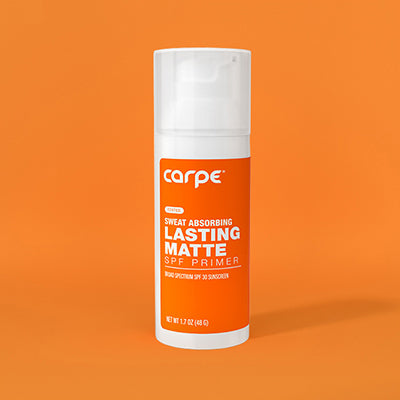
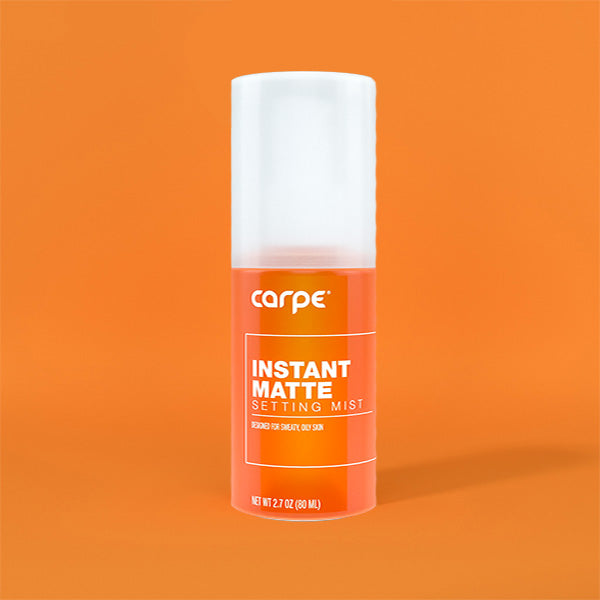
16790753702383.jpg?v=1679075372)

16790746985853.jpg?v=1679074700)


16790757289763.jpg?v=1679075731)








